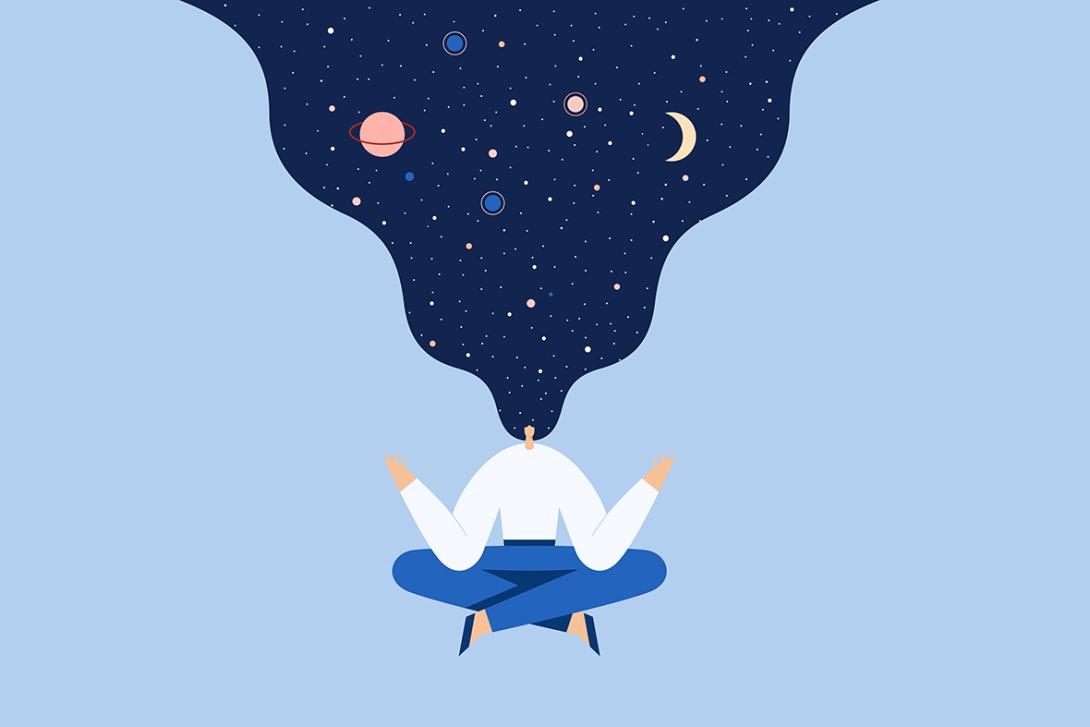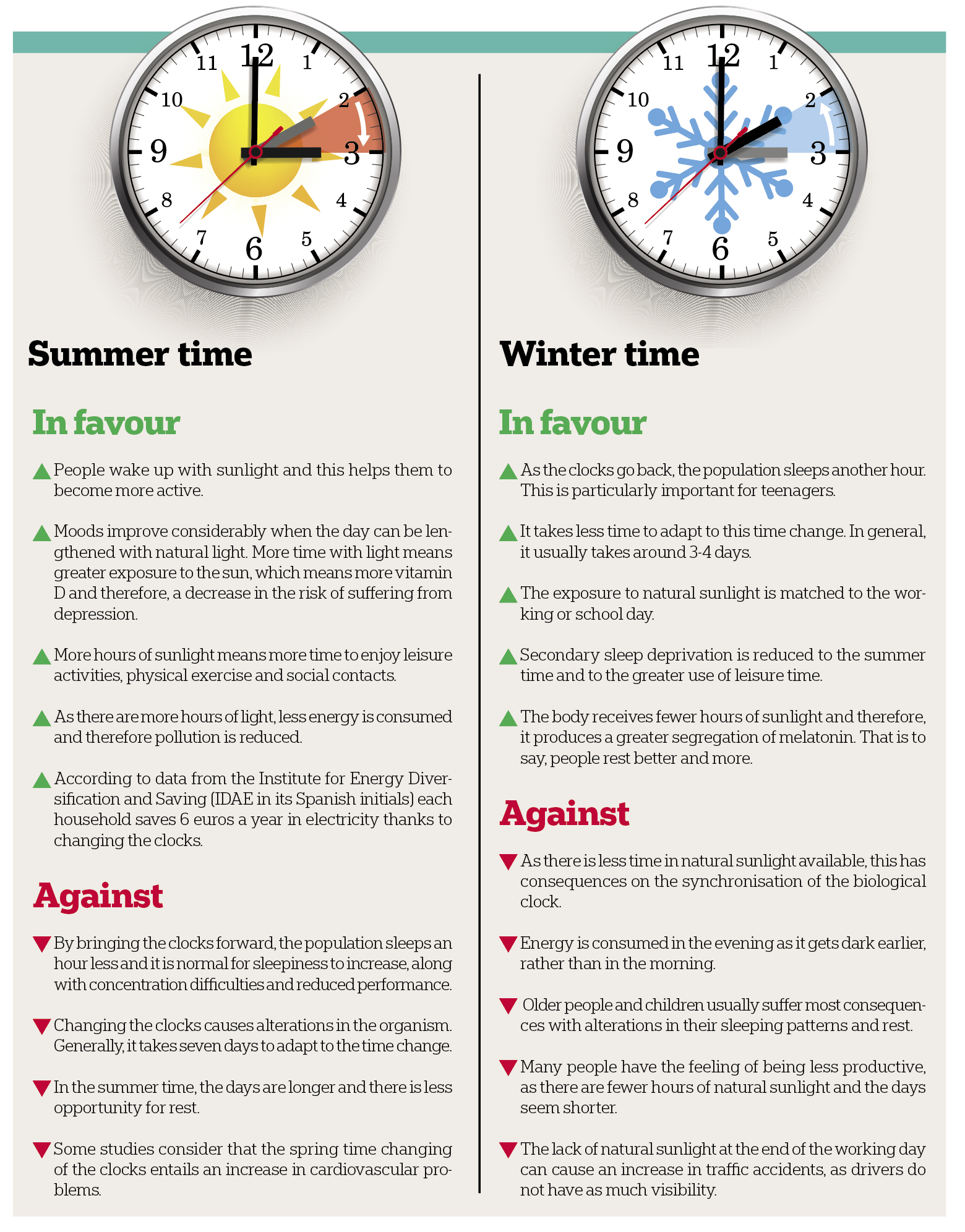
An hour means many changes
Changing the clocks (which in the beginning was meant to save energy), affects people’s circadian rhythm and therefore, their health and rest.
The official time in Spain at present is not the one it should have in according to its geographical location. And what does this mean? For example, in the more westerly regions, such as Galicia, the sun sets at 10 pm in the summer and in the winter it does not rise until 9 am. This causes some curious factors in Spain, which is ruled by Berlin time and not London time. Returning to Galicia, this community is in the same time zone as Warsaw (Poland), which is over 3,200 kilometres away, but the clocks are an hour earlier than in the neighbouring country of Portugal. And all of this causes even more disruptions when, twice a year, the clocks are changed. There are studies certifying that changing the clocks causes imbalances in the organism, mainly alterations in sleep patterns. These are similar to jet lag, although they are not long-lasting.
Now we are about to return to winter time, which is characterised by less time with natural sunlight. The priority during these months will be “to receive as much natural sunlight as possible,” Paula García Casanova, a psychologist specialising in sleep from the HLA Group explains. To do this, it is best to be exposed to sunlight for as long as possible. The psychologist also recommends “avoiding wearing sunglasses on the way to work and trying to ensure your workspace is close to a light source, such as a window.” In winter, as the sun sets earlier, the segregation of melatonin also starts earlier. “For this reason, it is normal to feel sleepy earlier,” she adds. Physical exercise is a good way to beat this.
Circadian rhythms
The circadian system (from the Latin circa which means “around” and diez which means “day”) allows people to get ahead of the environmental cyclical changes. In this way it guarantees a temporary organisation of the different internal systems. “On the brain level, it works like a clock, therefore it is normal to refer to it as a biological clock,” Paula García explains. And like the good clock that it is, it needs us to synchronise ourselves with the environment every day. “We use synchroniser stimuli or zeitgebers to synchronise our clock with the environment,” she adds. Without any doubt, the most powerful of these is the light-darkness cycle, but there are also others such as social contacts, activity and rest.
Accordingly, changing the clocks means a readjustment of the internal biological clock compared to the external environment and this will require, to a greater or lesser extent, an adaption that could affect the circadian rhythms of the different organic systems, on a hormonal and metabolic level, making falling asleep or managing to remain asleep more difficult.•





